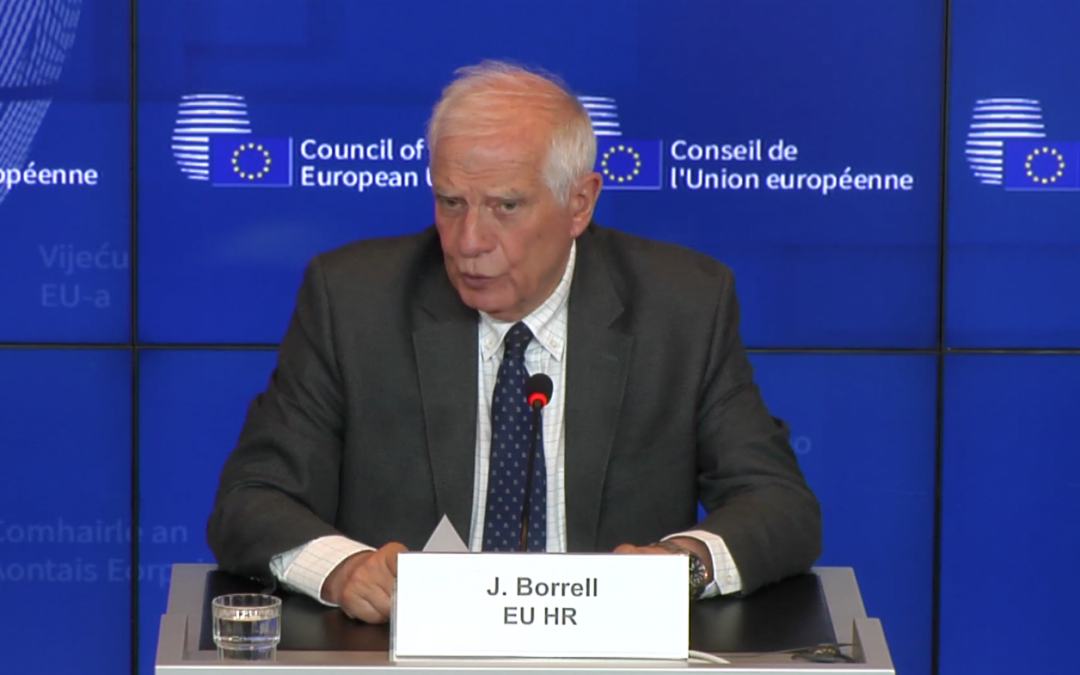LUXEMBOURG – The EU High Representative for Foreign Affairs and Security Policy, Josep Borrell, stated that he is trying to restart the dialogue between Belgrade and Pristina. Responding to a journalist’s question about why he invited Serbian President Aleksandar Vučić and the Prime Minister of the provisional Pristina institutions, Albin Kurti, to a dialogue in Brussels, he said at a press conference after meeting with the EU Council of Ministers that he is trying to find an operational solution. “We have an agreement, the Ohrid Agreement. It must be implemented,” Borrell emphasized.
According to him, the problem with agreements is that they have to be implemented. “The sides have not been able to implement them for various reasons,” Borrell emphasized, adding that he believes it was necessary to continue high-level meetings to understand where we stand, especially when member states are discussing his proposal to lift sanctions on Pristina. “If these sanctions are lifted, I hope, at least this is my proposal, even if only gradually but quickly, it can create a scenario in which the dialogue—I am not saying it will continue, but at least it won’t be abruptly interrupted,” Borrell said. He emphasized that the two leaders hadn’t met within the dialogue framework for a long time and that he would like something to happen before the end of his mandate.
Responding to the question of whether it is possible for Serbia to become an EU member and only then align its foreign policy with the EU’s, Borrell said that sharing the same foreign policy is one of the conditions for membership. “The path to Europe involves aligning positions on foreign policy. You cannot pretend to be a member state and undermine the common foreign policy,” Borrell emphasized. According to him, building a foreign policy agreement requires new member states to share the basic principles of this foreign policy. “And Serbia knows this very well. It is one of the conditions on the path to EU membership,” Borrell stressed. He stated that the European Union is ready to deepen the gradual integration of the Western Balkans and expand support to partners from the Western Balkans, but he emphasized that they should stand with the EU in defending the international order. After the EU Foreign Ministers’ meeting, Borrell said that this particularly applies to the situation around Ukraine and “the measures being implemented to counter the Russian invasion.” He stressed that the alignment of Western Balkan countries with the EU’s foreign policy is considered “an expression of their strategic choice to commit to membership.”
He also pointed out that maintaining close ties with the regime of Russian President Vladimir Putin “is not compatible with building a common future with and within the European Union.” (June 24)
 go to the original language article
go to the original language article
